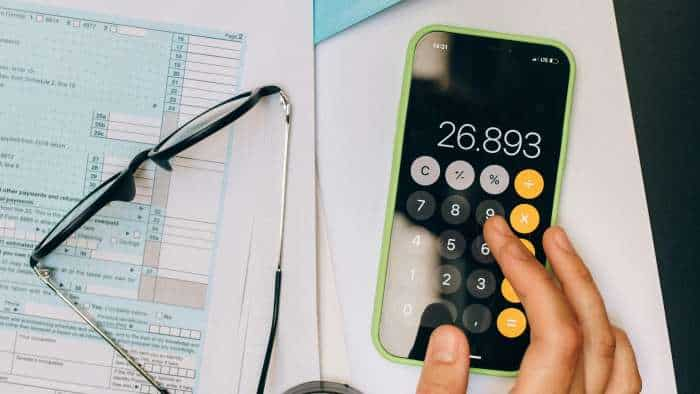March 31 Deadline: Complete these 5 money-related tasks to avoid penalty
NPS account holders must deposit at least Rs 1,000 in a Tier-1 account each fiscal year. However, the minimum deposit regulation does not apply to NPS Tier 2 accounts. NPS Tier 1 account holders can get an additional Rs 50,000 tax exemption under Section 80CCD(1B) of the Income Tax Act.
)
March 31 Deadline: The financial year 2023-24 is going to end soon, and there are only three days left to complete some of your finance-related tasks. These include investments related to Section 80C, National Pension Scheme's (NPS) mandatory contribution, and completing FaSTag KYC details, among others.
Here is a list of a few things with details that you should complete before March 31 to avoid a penalty.
NPS account: NPS account holders must deposit at least Rs 1,000 in a Tier-1 account each fiscal year. However, the minimum deposit regulation does not apply to NPS Tier 2 accounts. NPS Tier 1 account holders can get an additional Rs 50,000 tax exemption under Section 80CCD(1B) of the Income Tax Act.
If you do not make the minimum contribution to your NPS account, it will be blocked.
PPF account: To have an active PPF account, a minimum contribution of Rs 500 is required each financial year. Failure to make the mandatory annual deposit will result in the deactivation of the PPF account. You can reactivate your PPF account by paying a Rs 50 penalty for each year of default.
When a PPF account becomes inactive, loan and withdrawal options become inaccessible. The PPF account provides credit facilities beginning in the third year, while the withdrawal facility is available in the sixth year.
SSY account: This is a tax-efficient investment option for those wishing to save for a girl child. The SSY plan laws mandate that account holders make a minimum deposit of Rs 250 every fiscal year. If the mandatory deposit of Rs 250 is not made, the SSY account will be declared defaulted. The plan regulations allow a defaulted account to be reinstated at any time before maturity.
Individuals will be required to pay Rs 50 for each year they default. In addition to the default fee, people will be required to pay a minimum of Rs 250 every default year.
If the defaulted Sukanya Samriddhi account is not revived, the money will become payable at maturity. An SSY account matures 21 years after it was started, or when a girl child marries after turning 18.
FASTag KYC update: The date of March 31 is also important for FASTag users. National Highway Authority of India (NHAI) has given users until March 31 to update FASTag KYC details. According to FASTag, you can update your KYC details by visiting the website of the National Electronic Toll Collection or the portal of Indian Highways Management Company Limited. If you do not do this, your FASTag account and device will become invalid on April 1.
TDS filing: Taxpayers will have to show a TDS filing certificate in March for tax exemptions available under different sections for January 2024. If a tax deduction has been made under sections 194-IA, 194-IB, and 194-M, then the challan statement will have to be filed before March 31.
Get Latest Business News, Stock Market Updates and Videos; Check your tax outgo through Income Tax Calculator and save money through our Personal Finance coverage. Check Business Breaking News Live on Zee Business Twitter and Facebook. Subscribe on YouTube.
RECOMMENDED STORIES

18x15x12 SIP Formula: In how many years, Rs 15,000 monthly investment can grow to Rs 1,14,00,000 corpus; know calculations

PPF For Regular Income: How you can get Rs 78,000 a month tax-free income through Public Provident Fund investment?

Rs 5,000 SIP for 40 years vs Rs 50,000 SIP for 20 years: Which can create higher corpus? See calculations to know it
05:06 PM IST










 Income tax returns (ITR) filing: As March 31 deadline looms, have you fixed these financial matters
Income tax returns (ITR) filing: As March 31 deadline looms, have you fixed these financial matters